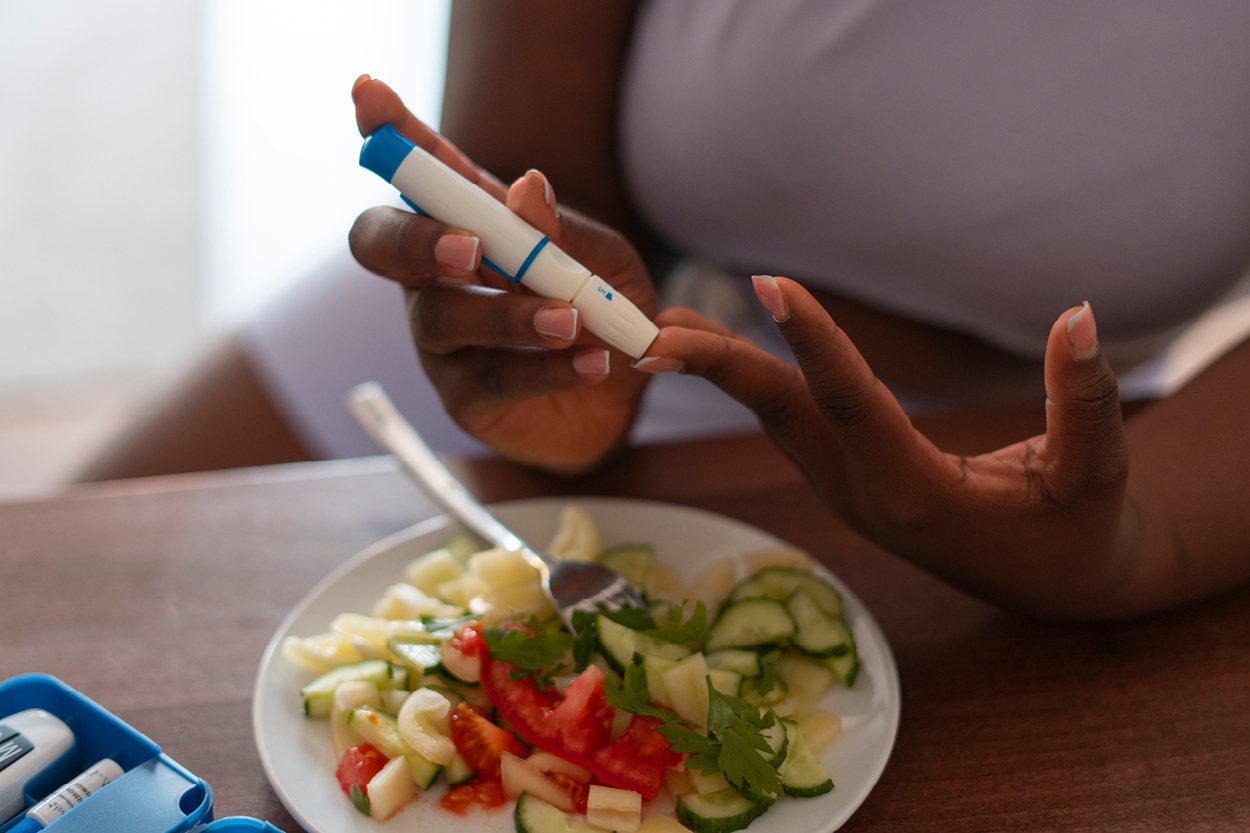Diabetes is a condition that changes how your body handles sugar from the food you eat. When you don’t have diabetes, your pancreas releases a hormone called insulin, allowing glucose to enter and fuel your body. But when you have diabetes, this system doesn't work the way it should, and sugar builds up in your blood instead of powering your cells. Receiving a diabetes diagnosis can be scary and overwhelming. At Solara Health, we are here to help you every step of the way, starting with learning as much about diabetes as you can.
Types of Diabetes:
Type 1 Diabetes occurs when your immune system mistakenly attacks the cells in your pancreas that make insulin. People with Type 1 need to take insulin every day because their bodies can't make it anymore.
Type 2 Diabetes is the most common type. With Type 2, your body either doesn't respond well to insulin or doesn't make enough of it. The good news is that many people can manage Type 2 through changes in their daily habits, sometimes along with medication.
Gestational Diabetes is a type of diabetes that develops during pregnancy. It usually goes away after your baby is born, but it's worth knowing that it can increase your chances of Type 2 later on.
Prediabetes is when blood sugar is higher than it should be, but not quite high enough to be called diabetes yet. This is actually good news because you have time to make changes that could prevent Type 2 diabetes altogether.
What are the Symptoms of Diabetes?
You might notice you're thirsty all the time and running to the bathroom more often than usual. That's your body trying to flush out extra sugar through your urine. If you feel exhausted even after a full night's sleep, it's another common sign that your cells aren't getting the energy you need.
Some people lose weight without trying, especially with Type 1 diabetes, because their bodies start burning fat and muscle for fuel instead of glucose. Your vision might become blurry, and cuts and bruises might take forever to heal, or you might get more infections than usual.
Managing Your Diabetes:
- Check Your Blood Sugar
- Monitoring helps you see how your body responds to different foods, activities, and medications. You'll start to notice patterns that help you make better choices, like eating less sugar closer to bedtime.
- Eat Well
- You don't have to give up everything you love. Focus on filling your plate with vegetables, lean proteins like chicken or fish, whole grains, and healthy fats. Changing your diet can be difficult, but start by replacing your nightly dessert with your favorite fruit.
- Stay Active
- You don't need to become a gym fanatic. Even a daily walk around your neighborhood helps your body use insulin better and keeps your weight in check. Most doctors suggest aiming for about 30 minutes of movement each day, five days a week.
- See Your Doctor Regularly
- Ensure you're seeing your healthcare team regularly so they can monitor your progress and make changes to your treatment if needed.
If you have questions about managing diabetes or need support on your journey, Solara Health is here for you. Schedule a consultation with our team, who understands what you're going through and can help you live your healthiest life.
published: Oct. 30, 2025, 3:32 p.m.

